Playwrights of Williamstown Theatre Festival Reveal Secrets of Their New Works
Jen Silverman, Jason Kim, Harrison David Rivers, Halley Feiffer, and Anna Ziegler discuss the works they’re premiering in the Berkshires.
This summer, the Williamstown Theatre Festival will present three world premiere plays, one co-world premiere, and one East Coast debut. Jen Silverman's The Roommate, Jason Kim's The Model American, Harrison David Rivers's Where Storms Are Born, Halley Feiffer's Moscow Moscow Moscow Moscow Moscow Moscow, and Anna Ziegler's Actually will all take the stage for brief runs in the Berkshires. What should audiences expect? We asked each playwright five questions to give us a taste of what they have in store.
Jen Silverman
Play: The Roommate
East Coast Premiere
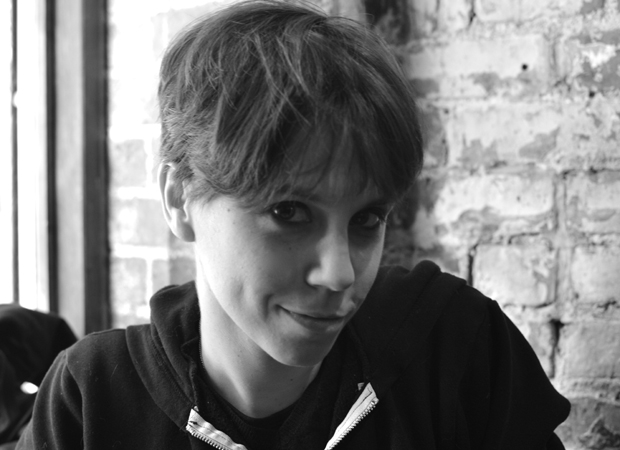
(photo provided by Williamstown Theatre Festival)
In your own words, how would you summarize your play?
Sharon, in her mid-50s, is recently divorced and needs a roommate to share her Iowa home. Robin, also in her mid-50s, needs a place to hide and a chance to start over. But as Sharon begins to uncover Robin's secrets, they encourage her own deep-seated desire to transform her life completely, and a dangerous new identity emerges.
What inspired you to write it?
I'm fascinated by the idea of transformation — what happens when we reach a moment in which the life that we have been living no longer sustains us. Can we burn it all down and start over? Who might we become, that we never imagined? These are questions that I so often see given to protagonists who are either in their 20s and 30s, or older male characters, who have pioneered the "middle-age crisis equals young mistress" genre. But I really wanted to see middle-aged female characters being allowed to get raw and messy and bold.
How did you come up with the title for this play?
Part of what the play examines is the language we have for ourselves — how we get hemmed in by the expectations that come with certain labels. The characters discover that they are better at being each other's roommates (and all the shades of meaning that they invent for that word) than they have been at many of the defining relationships in their lives. The title of the play is a nod to that.
What aspect of the play are you most excited to see come to life?
I'm always fascinated to see what audiences find funny, what they react to, what they identify with. Williamstown has been an amazing opportunity to do a final set of rewrites and revisit the ending of the play in particular, so I'm excited to learn from how a Williamstown audience responds.
What kind of conversation are you hoping the play inspires among audience members?
I hope the play challenges people to think about transformation in their own lives. If we're laboring under a set of fixed ideas about ourselves, then what are those ideas? What if we didn't accept them as truths? I'm not necessarily advocating for everyone to make the choices Sharon makes at the end of the play, but I'm interested in inviting an audience to think about their own assumptions about themselves, and what might happen if those assumptions were false.
Jason Kim
Play: The Model American
World Premiere
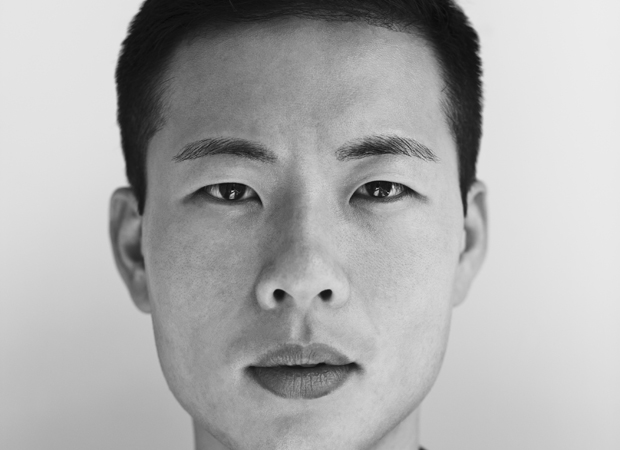
(photo provided by Williamstown Theatre Festival)
In your own words, how would you summarize your play?
The Model American is a play about an immigrant’s attempt to reinvent himself in order to survive in America.
What inspired you to write it?
I moved to the U.S. when I was 10 years old, and then it took me over 15 years to become an American citizen. During the course of that time, I stopped speaking Korean. I started dreaming in English. I stopped celebrating Chuseok and started celebrating Fourth of July. I forced myself to become someone entirely new because I was terrified of not fitting in. This play is very much about the anxiety of being an outsider and the journey of becoming someone brand-new.
How did you come up with the title for this play?
I am not sure if I remember the exact moment, but I probably sat at my desk and cried for a while, took a walk, ate a lot of trans fats, and then called my director Danny Sharron, who advised me to sleep on it.
What aspect of the play are you most excited to see come to life?
I am thrilled to be working with such a stellar cast. At a certain point, in order for a play to become three-dimensional, the playwright has to give the pages away to the actors. From the first day of rehearsal, I couldn’t wait to let the play go. I am so fortunate to be working with such a great company. I feel especially thrilled to continue working with two immigrant actors who have been with this play from the very beginning, Hiram Delgado and Han Jonghoon.
What kind of conversation are you hoping the play inspires among audience members?
I think the history of America is the history of immigration. The founding fathers were immigrants. And every American family can trace their lineage back to a time when an ancestor stepped foot on this land. I hope the play inspires audiences to begin talking about immigration in a personal way.
Harrison David Rivers
Play: Where Storms Are Born
World Premiere
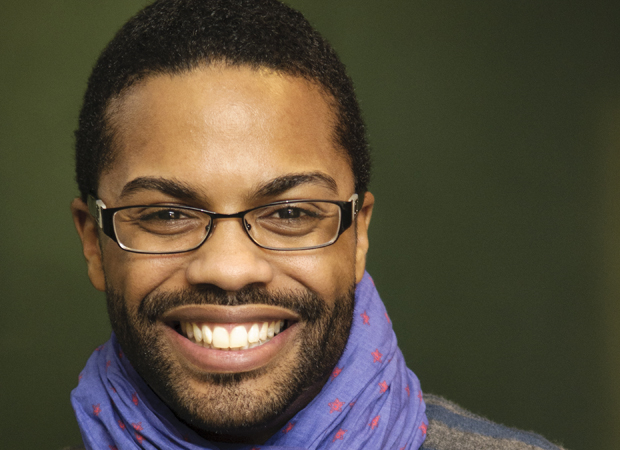
(photo provided by Williamstown Theatre Festival)
In your own words, how would you summarize your play?
Where Storms Are Born is a play about a mother and son journeying from grief to hope.
What inspired you to write it?
There was an article in the New York Times back in 2014 about a woman, Louise Austin, whose three sons were exonerated of murder after 20-plus years in prison. One of the three brothers had died inside. There was something about the bittersweetness of their reunion that felt like the beginning of a play.
How did you come up with the title for this play?
It’s a line from the poem "Reconnaissance" by the Harlem Renaissance writer Arna Bontemps.
What aspect of the play are you most excited to see come to life?
I get excited anytime there are people of color onstage — eating, drinking, loving, laughing, living their lives.
What kind of conversation are you hoping the play inspires among audience members?
Conversations about family and resilience; the seeming inevitability of incarceration and death in the black community; stars.
Halley Feiffer
Play: Moscow Moscow Moscow Moscow Moscow Moscow
World Premiere
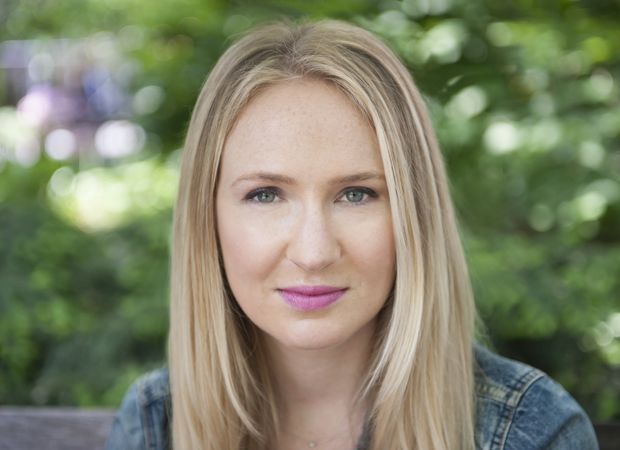
(© Ahron R. Foster)
In your own words, how would you summarize your play?
The play is an adaptation of Chekhov's Three Sisters told through the lens of my warped and deeply demented brain.
What inspired you to write it?
I love this play and wanted to share with other humans exactly what makes me love it. I especially wanted to lean hard into the inherent humor of the piece, which I feel is often overlooked in favor of the tragedy in this story. I believe firmly that when we lean into humor, the tragic elements of the story are further highlighted and the experience is richer, not to mention truer-to-life.
How did you come up with the title for this play?
I had tried out 39054830459843059832039482 other titles and they were all pretty terrible (and, if you can believe it, LONGER). One day I asked myself: what is this play about, really? And I realized it’s about all these people who believe there is one solution to their myriad problems — going to Moscow. And the hilarity and horror of the play is that this is certainly not the solution to their problems; the solution lies within them. And of course, they will probably never see this.
What aspect of the play are you most excited to see come to life?
We have such a dream team of artists assembled that it blows my mind. I cannot wait to see what this incredible group of actors and designers brings to this production, under the direction of the absolutely brilliant Trip Cullman. This is where the real work begins and I could not be more excited and humbled.
What kind of conversation are you hoping the play inspires among audience members?
In short, an examination of the ways in which we manufacture our own misery. 😀
Anna Ziegler
Play: Actually
World Premiere
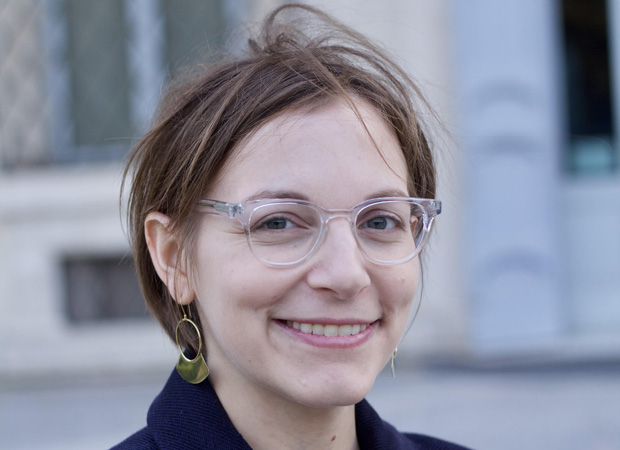
(photo provided by Williamstown Theatre Festival)
In your own words, how would you summarize your play?
Actually is the story of two college freshmen on a collision course towards a single night together that’ll alter each of their lives. But it’s less a story about what happens to them than about who they are, and about how who they are gets them to that night and defines what they do there.
What inspired you to write it?
I’m often drawn to stories that examine the nature of "the truth," in which multiple perspectives reveal the impossibility of a single definitive version of events. And the sexual misconduct cases that are proliferating on college campuses right now provide a fascinating, and painful, example of this, and of the particular difficulties of ascertaining what really happened between two people. But more than anything, I was interested in these two characters and what led each to the moment in question — how society and personality converge to create a combustible mix of self-doubt and the desire to fit in, and how, as a result, good people can end up compromising themselves and others. I was also really intrigued by the idea of trying to determine truth at the dicey, charged intersection of race and gender, where biases abound.
How did you come up with the title for this play?
My working title was Actually I Didn't and then I decided it was clunky and I wasn’t into it and came up with long lists of titles, really bad ones like Consent.Edu, that I polled friends and family about for weeks. Then, in a second, as sometimes happens, I realized the title was actually just Actually — it pulls a lot of the pieces of the play together and is resonant on different levels.
What aspect of the play are you most excited to see come to life?
This is a co-world premiere, so I’ve actually seen one production of the play already. But I’m excited to see how a different director and team bring the play to life in a new way.
What kind of conversation are you hoping the play inspires among audience members?
I imagine the play will spur talk about the often murky nature of consent (especially when alcohol is part of the picture), the way that external pressures and gendered conditioning can impact behavior, the complications that arise when race and gender are thrown into the same simmering pot, and the difficulty of trying these sorts of cases in a single prescribed way when each is so different.











